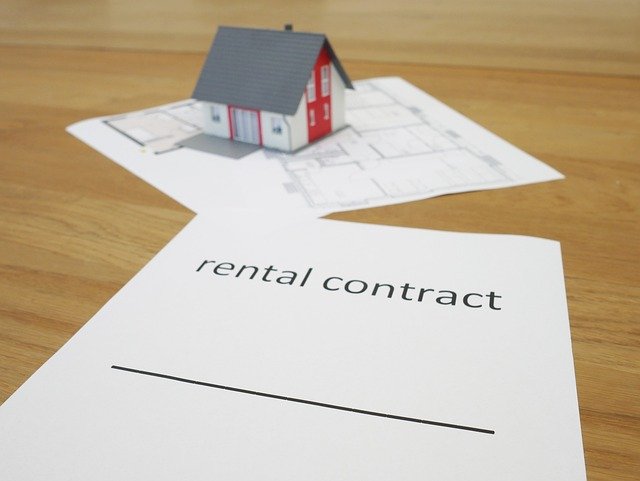Selecting a Used Car: Essential Information and Tips for Smart Buyers
When selecting a used car, having the right information at your fingertips is essential for making a sound investment. This comprehensive guide offers invaluable insights into understanding your budget, researching the best used cars, and avoiding common pitfalls. From inspecting vehicles to negotiating prices effectively, our expert tips will help you navigate the used car market effortlessly.

Understanding Local Used Car Listings
When searching for a pre-owned vehicle, exploring local used car listings is often the most practical starting point. These listings can be found through online marketplaces, dealership websites, classified ads, and community bulletin boards. By focusing on car used cars nearby, you can physically inspect vehicles before committing to a purchase, which is crucial for assessing their true condition. Local listings also allow you to verify ownership history, check for regional wear patterns like rust in humid climates, and potentially negotiate face-to-face with sellers. Take time to compare multiple listings, noting mileage, year, make, model, and asking price to identify fair market values in your area.
Getting a Used Car Delivered: Convenience and Considerations
For buyers who find the perfect vehicle outside their immediate area, getting a used car delivered has become an increasingly popular option. Many dealerships and private sellers now offer delivery services, sometimes for a fee based on distance. This approach saves time and expands your selection beyond local inventory. However, it is essential to thoroughly vet the vehicle beforehand through detailed photos, video walkthroughs, and comprehensive vehicle history reports. Request a pre-purchase inspection by a trusted mechanic near the seller’s location if possible. Clarify delivery terms in writing, including who assumes responsibility for the vehicle during transit and what recourse you have if the car arrives in a condition different from what was described.
Evaluating Used Car Sales Strategy
Understanding the used car sales strategy employed by dealerships and private sellers can give you a significant advantage during negotiations. Dealerships often price vehicles with room for negotiation, factoring in trade-in values, financing options, and extended warranties. Private sellers may be more flexible on price but typically offer no warranties or return policies. Research the vehicle’s market value using trusted valuation tools before entering discussions. Be prepared to walk away if the terms do not meet your expectations. Ask questions about the vehicle’s service history, accident records, and reasons for selling. A transparent seller who provides documentation and answers questions openly is generally more trustworthy than one who avoids details or pressures you into a quick decision.
Navigating Used Car Markets
Used car markets vary widely depending on location, economic conditions, and seasonal demand. Understanding these dynamics helps you time your purchase strategically. For instance, convertibles and sports cars may be more affordable in fall and winter, while SUVs and trucks might see higher prices during those months. Online platforms have expanded access to used car markets, allowing buyers to compare prices across regions and identify trends. However, always verify the legitimacy of sellers and listings to avoid scams. Attend local auto auctions if you are comfortable with fast-paced bidding environments, but be aware that auction vehicles are typically sold as-is with limited recourse. Patience and thorough research are your best tools in any market.
Key Inspection Points Before Purchase
Before finalizing any used car purchase, conduct a comprehensive inspection or hire a professional mechanic to do so. Check the exterior for signs of previous accidents, such as mismatched paint, uneven panel gaps, or rust. Inspect tires for tread depth and even wear, which can indicate alignment issues. Under the hood, look for leaks, corroded battery terminals, and worn belts or hoses. Test drive the vehicle in various conditions—city streets, highways, and hills—to assess acceleration, braking, steering responsiveness, and transmission smoothness. Listen for unusual noises like grinding, squealing, or knocking. Inside, ensure all electronics, climate controls, and safety features function properly. Request a vehicle history report to uncover past accidents, title issues, or odometer discrepancies.
Cost Considerations and Pricing Insights
Understanding the financial aspects of buying a used car is critical for making a sound investment. Prices vary based on factors like age, mileage, condition, brand reputation, and market demand. On average, a reliable used sedan from a reputable brand may range from $10,000 to $20,000, while SUVs and trucks often fall between $15,000 and $30,000, depending on their age and features. Luxury brands and low-mileage vehicles command higher prices. Beyond the purchase price, budget for registration fees, taxes, insurance, and potential repairs. Financing options are available through banks, credit unions, and dealerships, with interest rates influenced by your credit score and loan term. Extended warranties, though optional, can provide peace of mind but add to upfront costs.
| Vehicle Type | Typical Price Range | Key Considerations |
|---|---|---|
| Compact Sedan | $8,000 - $15,000 | Fuel efficiency, lower insurance costs |
| Mid-Size SUV | $15,000 - $25,000 | Family-friendly, higher maintenance |
| Pickup Truck | $18,000 - $35,000 | Utility, higher fuel consumption |
| Luxury Sedan | $20,000 - $40,000 | Premium features, expensive repairs |
| Hybrid Vehicle | $12,000 - $22,000 | Fuel savings, battery replacement costs |
Prices, rates, or cost estimates mentioned in this article are based on the latest available information but may change over time. Independent research is advised before making financial decisions.
Final Thoughts on Smart Used Car Buying
Purchasing a used car requires diligence, patience, and informed decision-making. By leveraging local used car listings, understanding sales strategies, and conducting thorough inspections, you can find a vehicle that meets your needs without overspending. Whether you choose to buy locally or explore delivery options, prioritize transparency, documentation, and professional assessments. Remember that the lowest price does not always represent the best value—factor in long-term reliability, maintenance costs, and resale potential. With careful planning and research, buying a used car can be a rewarding experience that provides dependable transportation for years to come.




